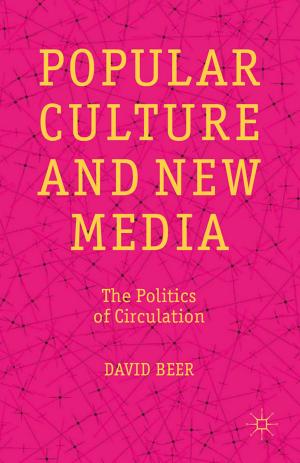The Eurosceptic 2014 European Parliament Elections
Second Order or Second Rate?
Nonfiction, Social & Cultural Studies, Political Science, Government, Democracy, International| Author: | ISBN: | 9781137586964 | |
| Publisher: | Palgrave Macmillan UK | Publication: | December 8, 2016 |
| Imprint: | Palgrave Macmillan | Language: | English |
| Author: | |
| ISBN: | 9781137586964 |
| Publisher: | Palgrave Macmillan UK |
| Publication: | December 8, 2016 |
| Imprint: | Palgrave Macmillan |
| Language: | English |
This edited collection explores the role of Euroscepticism in the European Parliament (EP) elections of 2014 both in particular EU Member States and across broader regions. It shows how the “second rate” features of elections with no clear agenda-setting role facilitated the astonishing success of Eurosceptic parties while the traditionally “second order” nature of purely legislative elections amplified this outcome, giving it a quite different character than the outcome of any previous EP elections, with potential in turn to affect outcomes of later national elections as well. The chapters draw on a number of different methodological approaches and focus on different perspectives regarding how Euroscepticism played a role in the election context, investigating public opinion, party strategies and media coverage; and assessing how these elections created links to national party politics with likely consequences for electoral success of Eurosceptic parties in future national elections and referendums. This book will be of particular interest to students and scholars in the fields of European politics, voting behavior Euroscepticism.
This edited collection explores the role of Euroscepticism in the European Parliament (EP) elections of 2014 both in particular EU Member States and across broader regions. It shows how the “second rate” features of elections with no clear agenda-setting role facilitated the astonishing success of Eurosceptic parties while the traditionally “second order” nature of purely legislative elections amplified this outcome, giving it a quite different character than the outcome of any previous EP elections, with potential in turn to affect outcomes of later national elections as well. The chapters draw on a number of different methodological approaches and focus on different perspectives regarding how Euroscepticism played a role in the election context, investigating public opinion, party strategies and media coverage; and assessing how these elections created links to national party politics with likely consequences for electoral success of Eurosceptic parties in future national elections and referendums. This book will be of particular interest to students and scholars in the fields of European politics, voting behavior Euroscepticism.















